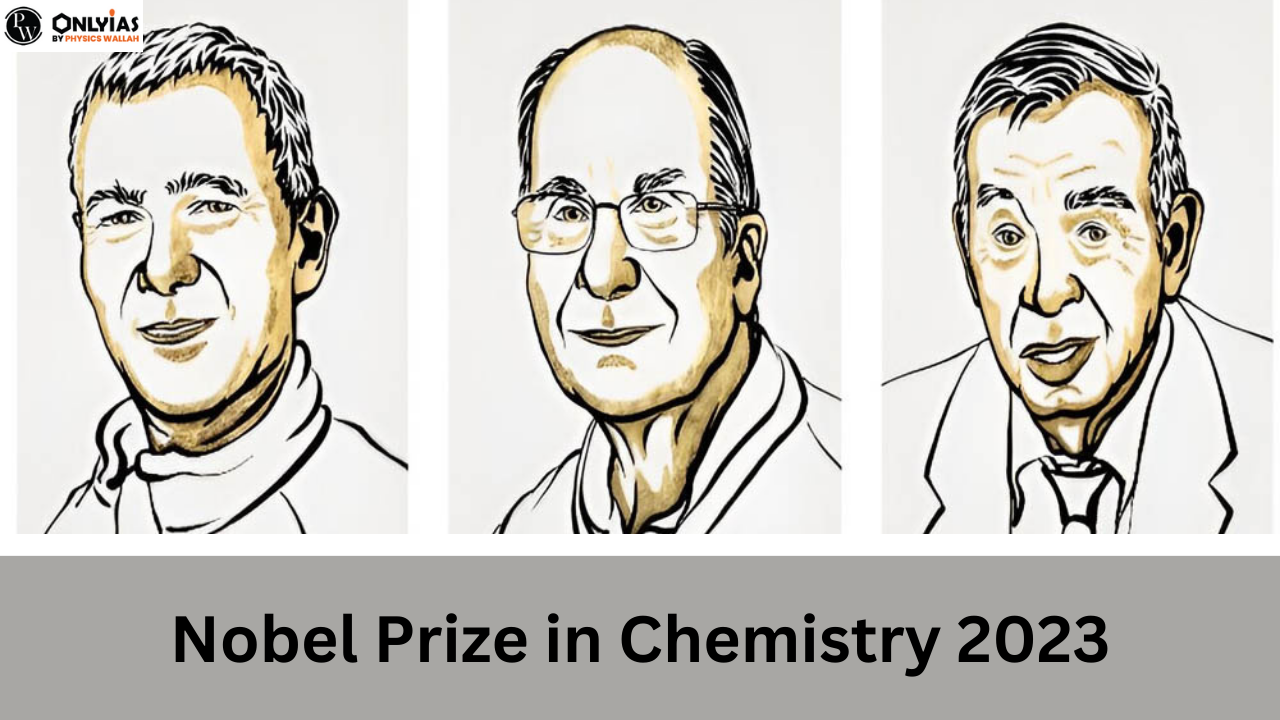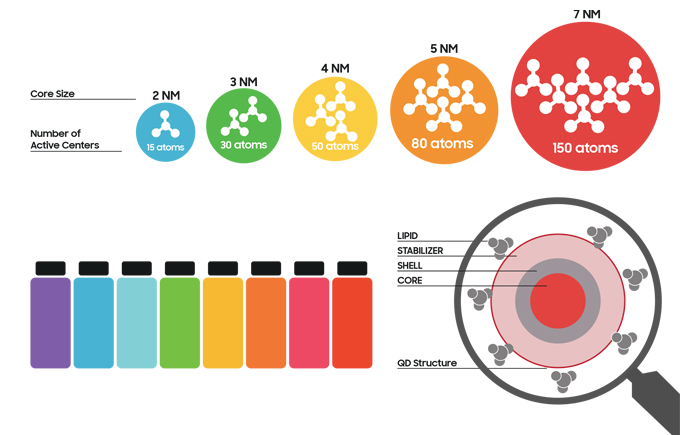![]() Ananya Gupta
Ananya Gupta
![]() October 05, 2023 12:44
October 05, 2023 12:44
![]() 2557
2557
![]() 0
0
Moungi G. Bawendi, Louis E. Brus, and Alexei I. Ekimov have been awarded the Nobel Prize for the discovery and synthesis of quantum dots.

Moungi G. Bawendi, Louis E. Brus, and Alexei I. Ekimov have been honored with the prestigious Nobel Prize in Chemistry for their groundbreaking discovery and synthesis of quantum dots. The year 2023 marks a momentous occasion as the Nobel Prize recognizes their remarkable contributions to the field of chemistry, particularly in unraveling the secrets of quantum dots, nanoparticles so infinitesimal that their properties are intricately tied to their size. These minute building blocks of nanotechnology have made their presence felt across diverse realms, from illuminating the screens of televisions and LED lamps to guiding skilled surgeons during the intricate process of tumor tissue removal, among a multitude of other applications. For this significant achievement, the Nobel Prize in Chemistry for 2023 carries an esteemed monetary award of 11.0 million Swedish kronor (SEK) for each laureate.
In the world of chemistry, students are taught that an element’s behavior is dictated by the number of electrons it possesses. However, when matter is scaled down to the nano-dimensions, a fascinating realm of quantum phenomena emerges, and it is the size of these minuscule structures that holds sway over their properties. The Nobel Laureates in Chemistry for the year 2023 have achieved a remarkable feat by producing particles so diminutive that their characteristics are dictated by these quantum phenomena. These particles, aptly named quantum dots, have now assumed a pivotal role in the realm of nanotechnology, offering immense promise and potential for a wide array of applications.
Also Read:
Quantum dots are tiny semiconductor particles, typically ranging from a few nanometers to tens of nanometers in size. They are often composed of materials like cadmium selenide (CdSe), cadmium telluride (CdTe), or indium arsenide (InAs). What sets quantum dots apart is their quantum mechanical properties, which give rise to some remarkable characteristics:

Size-Dependent Properties: The physical and optical properties of quantum dots, such as their color and conductivity, are highly dependent on their size. This means that by precisely controlling the size of quantum dots during their synthesis, researchers can tune their properties for specific applications.
Color Tunability: Quantum dots are known for their ability to emit light in a wide range of colors. The color of light emitted by quantum dots can be finely adjusted by changing their size. This property is exploited in displays and lighting technologies to produce vibrant and efficient colors.
Applications: Quantum dots find applications in various fields, including electronics, photonics, and medicine. They are used in displays (such as QLED and OLED screens), LED lighting, solar cells, and medical imaging. In biology and medicine, they can be employed as fluorescent labels to tag and track specific molecules and cells.
Efficiency: Quantum dots can be engineered to efficiently convert and emit light. This makes them valuable in technologies where energy efficiency and precise color rendering are essential, such as in high-quality displays and lighting systems.
Potential for Quantum Computing: Quantum dots also hold promise in the development of quantum computing. Their quantum properties can be harnessed to create qubits, the fundamental units of quantum information, which could revolutionize computing in the future.
Moungi G. Bawendi
Moungi G. Bawendi was born in 1961 in Paris, France. He earned his Ph.D. in 1988 from the University of Chicago, IL, USA, and currently serves as a Professor at the Massachusetts Institute of Technology (MIT) in Cambridge, MA, USA.
Louis E. Brus
Louis E. Brus was born in 1943 in Cleveland, OH, USA. He completed his Ph.D. in 1969 at Columbia University in New York, NY, USA. He holds the position of Professor at Columbia University in New York, NY, USA.
Alexei I. Ekimov
Alexei I. Ekimov was born in 1945 in the former USSR. He earned his Ph.D. in 1974 from the Ioffe Physical-Technical Institute in Saint Petersburg, Russia. He previously served as the Chief Scientist at Nanocrystals Technology Inc. in New York, NY, USA.
The Nobel Prize in Chemistry has a rich history, having been awarded 114 times to 191 distinguished Nobel Prize laureates from the year 1901 to 2022. Remarkably, both Frederick Sanger and Barry Sharpless have had the honor of receiving the Nobel Prize in Chemistry twice, adding to the prestige of this accolade. In total, 189 individuals have had the distinction of being Nobel Prize laureates in Chemistry.
Nobel Prize medal in chemistry is a testament to artistic and scientific excellence. Designed by the talented Swedish sculptor and engraver Erik Lindberg, the medal depicts Nature personified as a goddess reminiscent of Isis. She emerges gracefully from the clouds, cradling a cornucopia in her arms. The veil adorning her countenance, which carries an air of cold austerity, is delicately held aloft by the Genius of Science, symbolizing the profound connection between science and the mysteries of the natural world.
The title of the youngest Nobel Prize laureate in chemistry belongs to Frédéric Joliot. In the year 1935, at the age of just 35, Frédéric Joliot achieved this remarkable distinction when he was jointly awarded the Nobel Prize in Chemistry, sharing the honor with his wife, Irène Joliot-Curie.
The oldest Nobel Prize laureate in the field of chemistry was John B. Goodenough, who was awarded the Nobel Prize in Chemistry in 2019. He received the prize at the age of 97, making him the oldest laureate in the chemistry category.
Also Read:
<div class="new-fform">
</div>

Latest Comments